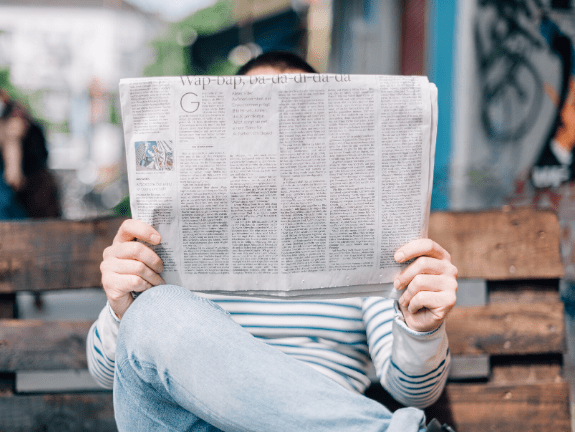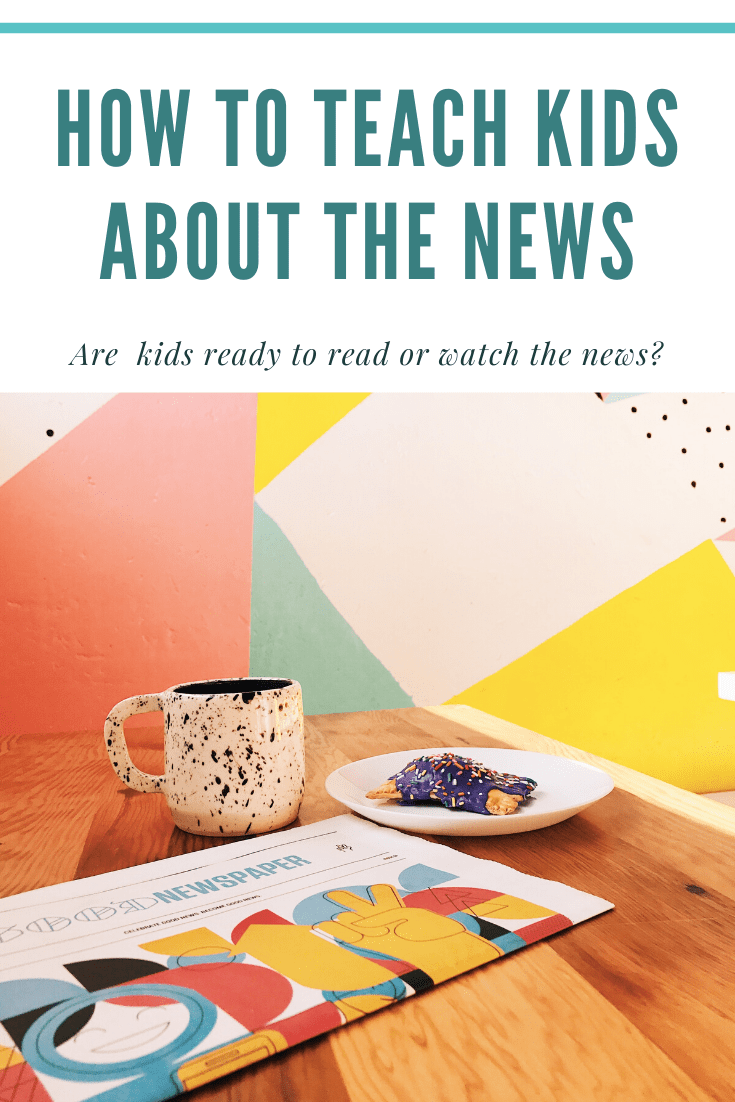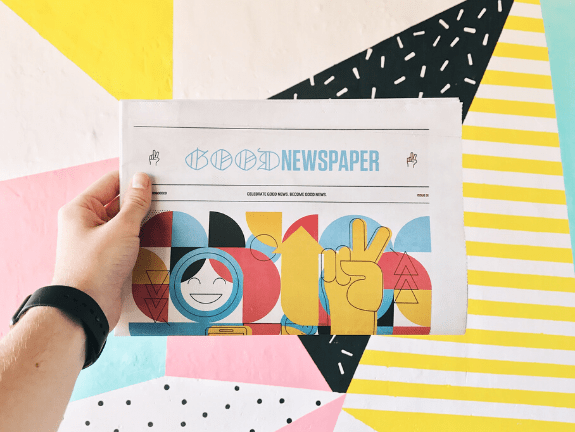Are your kids ready to read or watch the news?
 Written by Melissa Camara Wilkins
Written by Melissa Camara Wilkins
When I was a young adult, I remember a string of weeks where one particular salacious news story was featured in every five o’clock, six o’clock, and eleven o’clock news hour.
There were never new details to report, but the story was intriguing, and every news commercial would tell viewers to tune in, just in case.
Then one night, I happened to turn on the television just as the PBS News Hour began. The stories here were more meaty than the ones I was used to, and told more slowly, with more detail and nuance.
Sometimes history was discussed to shed light on the present. The connection between events was explained.
The salacious news story wasn’t mentioned at all, not even once.
That was the first time I realized there was a difference between news as entertainment and news as education.
News as entertainment is terrible for our blood pressure. News as education can help us become well-informed citizens.
So how do we learn about local and world events without getting overwhelmed? How do we stay open to learning about news that contradicts our own ideas? How do we know whether the news we’re getting has been fact checked? How do we get the information we need without seeing our blood pressure spike?
And how do we teach our kids to engage with current events as thoughtful, responsible citizens, not just consumers of news-as-entertainment?

I’ll tell you what we do at our house, but I’m really interested in hearing from YOU—how do you teach your kids about current events? What resources have been helpful? Let me know in the comments.
My own kids are 7, 9, 12, 14, 17, and 19 as I write this, and engaging with the news looks different for each one of them.
For the younger kids, we use picture books as a starting place for learning about social issues and historical events. We share news that will affect them or people they know, but they don’t watch or read news media.
For tweens and young teens, we share important news stories that affect their community and the larger world, and discuss what is being done to help in difficult situations. Again, they’re not consuming news media on their own.
By the time our kids are older teenagers, they do regularly read news articles to discuss with us, so that we can all be learning things together.
I want us to practice asking this question together: Is this a story I can do something about? (Here’s the internal flowchart I use for figuring out how to handle news stories, whether I can do something or not.)
I don’t want to encourage my kids to get sucked into the vortex of clickbait news, but I do want them to know how to research current events as they become (voting!) adults. And learning about what’s happening in other communities helps us to know how to offer support in difficult times.
(Not every kid needs access to the news, of course—kids who struggle with anxiety, for example, might not need to read about potentially distressing events. This isn’t a one-size-fits-all situation.)
As our kids begin reading, we encourage a whole lot of curiosity.
We want our kids to ask themselves questions like these:
Are YOU ready to check the news?
- If you’re already feeling worn out, anxious, or depleted, this might not be the right time.
- Are you aware of your own opinions about the topics in the news? Can you set those opinions aside for a minute so you can read with an open mind?
- Are you actually looking for information, or are you looking for a distraction right now? (If we’re just bored, the news might not be the best option.)

Is this a reputable news source?
- Is this a news outlet with a policy of journalistic integrity, fact checking, and accountability? How do we know? (This is different than asking if we agree with the news outlet’s slant! Our goal is to find news sources committed to reporting the news, not spinning the news.)
- Does this news outlet clearly label which pieces are factual reporting, and which are opinion pieces?
- Does this news source have a particular political or ideological agenda? (A quick google search will help to answer this.)
- Are these headlines designed to bring up fear or outrage? (If so, let’s choose a more straightforward news source.)
What is this story trying to tell us?
- What is the headline communicating?
- What’s the story here?
- What is the tone of the article?
- Does the reporter seem to be guiding the reader to a particular conclusion? How can we tell? Do you agree with that conclusion?
- What questions do you still have?
Whose story are we hearing?
- Whose perspective is being presented here? Whose perspective is missing?
- Who gets quoted? Who doesn’t get to speak for themselves?
- Which communities are represented here? Which are left out?
- Which communities are portrayed positively? Which are not?

Do we need a broader perspective?
- What are other news sources reporting about this topic?
- Is there a primary source where we could learn more?
- Can we learn directly from the sources quoted?
- Is there a local source where we can learn how this topic affects our community?
- Is there a book that could offer a deeper or more historical overview?
Is there anything we still don’t understand?
- After reading and discussing, are there still things we still don’t really get?
- Are there terms we need to define?
- Are there policies being discussed that we aren’t clear on?
- Do we need to look up some geography, or history, or other facts?
- Are we reading something that conflicts with other sources?
- How else can we learn more?
As we follow these questions, we keep discussing what we’re learning, so we can all work through ideas and events together.
What about your family? How do you share current events with your kids or teens, on their way to becoming informed citizens? Are there resources that you’ve found helpful? I’d love to know.
What’s Your Homeschool Mom Personality? Take Jamie’s quiz now and receive a free personality report to help you organize your homeschool based on what your personality type needs most!
